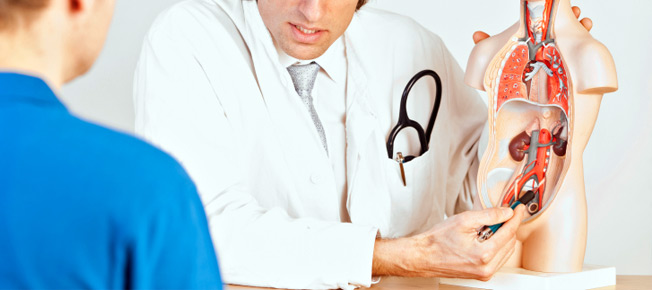-
- 8
Urology
Our urinary system, or urinary tract, is made up of the kidneys, ureters, bladder and urethra. The urinary tract stores and expels urine (the liquid waste product) and keeps the right balance of water and chemicals in the body. Urination starts with blood filters in the kidneys, which pass urine through the ureter to the bladder where urine is held until drained through the urethra.
Children and adults, men and women all can be affected by urological conditions. Urology focuses on the care of the kidneys, ureters, bladder and urethra. In women, these problems manifest in conditions such as incontinence, pelvic pain, vaginal prolapse and urinary tract infections. But urology also deals with the male organs that help make babies—the penis, testes, scrotum and prostate. Among the more common conditions related to urology for men are kidney stones, prostate cancer, overactive bladder, erectile dysfunction and low testosterone.
Symptoms You Should Never Ignore
Some of these conditions are silent—you wouldn’t know you have a problem unless you are tested. But there are symptoms you should never ignore that could indicate a urological problem. When should you see a urologist? The University of Rochester Medical Center recommends seeing a specialist if you:
• Have blood in your urine (hematuria) • Experience consistent pain or burning while urinating, which could indicate a urinary tract infection (UTI) • Have a frequent need to urinate or have difficulty urinating • Experience incontinence • Have frequent UTIs • Have severe constipationConditions exclusive to men include: problems with getting or keeping an erection; anything related to fertility; an elevation or change in your prostate-specific antigen (PSA); an abnormal prostate exam; or a testicular mass or persistent pain. Prostate cancer is the most common cancer among American men, yet in its early stages, prostate cancer often has no symptoms.
Women experience urological problems differently, such as urinary incontinence and urinary tract infections. They also may have urinary fistula, pelvic organ prolapse and voiding dysfunction.
- +(91)-144-2700400
- 10,Ram Kutir, Ashoka Circle, ALWAR - 301001
- info@SolankiHospital.com


